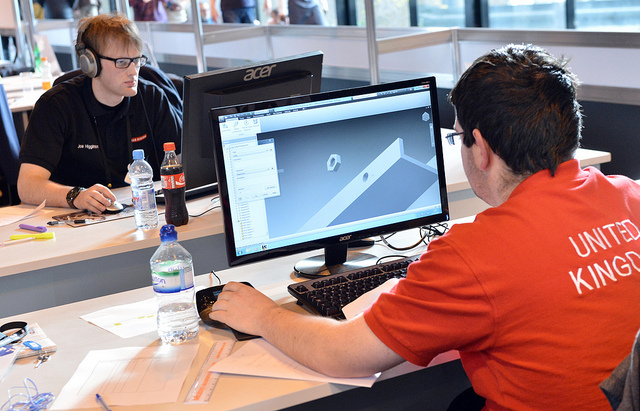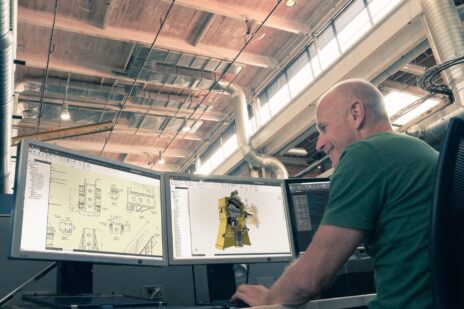
Whether you are a new engineer or one that has been in the business for years, there are always things about yourself you can improve. So, what are some skills we could all stand to hone to improve our engineering?

Communication
Communication is perhaps the most important skill that a rising engineering can have. Knowing how to communicate as an engineer will likely get you hired – it will take you far in your career. All of the top engineers throughout history have been excellent and even world renowned communicators. The world needs more engineers that can communicate their designs to not only other engineers but also the marketing team and just the general public. An engineer that communicate will beat out the smartest engineers that can’t communicate for a jobany dayy.
Networking
If you are a rising engineer, your network may only consist of people in your immediate workplace or from college. This network can be great, but you always want to seek ways to expand it. Whether it be your immediate network or just acquaintances, the more contact information you can gather and relationships you can build, the better off you will be. When it comes time to look for a new job, that network will come in handy. Not only this, but when you are looking for clients or vendors, your network can often make the decision process much easier. There really aren’t any downsides to having a large professional network other than being offered too many jobs – and I think we all want that problem.
Time Management and Estimation
Your 4, 5, maybe even 6 year stint at engineering school probably taught you a decent bit about time management. That, or you just barely escaped the depths of academia. Either way, this skill is arguably the most important in the daily life of an engineer. For most engineers, quoting jobs and being able to plan out your day relies on your skills of time management and time estimation. Many of the tasks that we do on a daily basis as engineers are open ended and it is up to us to be able to estimate when they will be completed. Your boss, and your clients, will love you even more if you can get things done on time and early on a consistent basis.
CAD
Computer Aided Design, learn it, breathe it, wear it, do whatever it takes to know it like the back of your hand. Virtually every single engineer uses some form of CAD on a daily or weekly basis, and you’re going to use it too. Not sure which CAD tool to use? You can either pick one at random or do some research into the tools that your career path with use. Just knowing one CAD program will demonstrate to employers that you can quickly pick up the technical skills associated with it. Being the best at CAD is also a very achievable goal for an engineer within a firm. Set your sights on learning a little each day and eventually you’ll be miles ahead of your co-workers.
Record Keeping
Many engineering professions lend themselves to intense record keeping for legal or licensing reasons. As engineers, we are responsible for the products or structures that get made every day. Whether you just want to go back and make changes to a part or if you get into some legal trouble, a record book can save your life – literally. Get in the habit of taking records, even if the tasks seem insignificant. Having all of your past work written down can be great for building a resume, redesigning a product or defending your product against a legal battle. The only disclaimer with record keeping is that you make sure to respect the constraints set by your company, and don’t use any intellectual property that isn’t yours or a prior company’s down the line.
You might notice that most of these skills have nothing to do with engineering specifically. This is because the greatest engineers are the best workers, the best communicators. To be a great engineer, you have to constantly work to better yourself outside of standard engineering skills. Take these tips and apply them to your career and watch your workflows improve.
Image: [1]


